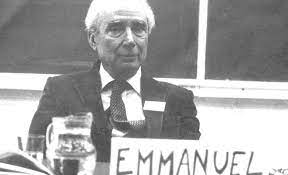Arghiri, Emmanuel

Bio: (1911-2001) Greek economist. Argiri graduated from law school in 1934, after which he started working as an economist. In 1937 he went to the Belgian Congo, and in 1957 he moved to France, where he came under the influence of Charles Bettelheim. Although from the 1930s he was inspired by Marxism and was active in the struggle for its realization, he became famous for his contribution to the dependency theory, with his theory of unequal exchange published in 1962 in the book Unequal Exchange, which he co-wrote with Betlheim. In his theory of unequal exchange, Argiri criticizes similar theories of Prebisch and Singer; and points out that politically and historically determined wage levels are the ones that determine relative prices, and not the other way around, as previously thought in economics. He showed that capital is internationally mobile and that the profit percentage is harmonized at the global level. Since the labor force is not internationally mobile, this explains the absence of solidarity between workers from different countries because they remain nationally bound and fight for their own interests, which ultimately leads to an unequal exchange between countries with high and low wages. According to his theory, the global economy functions below its full potential and is prone to crises.
Fields of research
Capitalism Capitalist Class Colonialism Corporations Economy Exploatation, Economic Industry Monopoly, Economic State Work Working ClassTheoretical approaches
Dependency TheoryMain works
Change inégal (1962);
L'échange inégal: Essais sur les antagonismes dans les rapports économiques internationaux (1969);
Le profit et les crises (1974).
The Myths of Development versus 'Myths of Underdevelopment' (1974).

